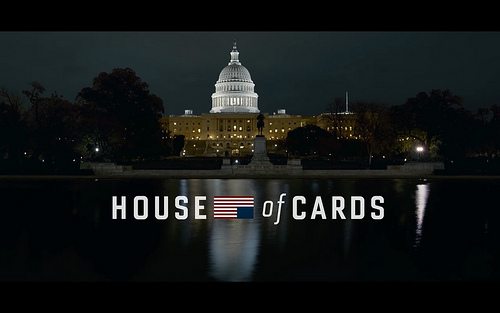The Apollonian and the Dionysian
In Ancient Greek mythology, Apollo and Dionysus were both sons of Zeus, the former being the god of the sun, reason and dreams, the latter being the god of wine, intoxication and ecstasy. While by no means rivals or even polar opposites, their differences in nature have been used in philosophy and psychology to describe our conflicting selves – the rational and moral Apollonian side versus the instinctive and ruthless Dionysian. Politics and art are both extensions of the self and it should come as no surprise that shows which meaningfully explore politics can be similarly dichotomised. With a show about family values, society and the greater good, The West Wing is clearly the Apollonian, whilst the ambition, greed and self-preservation of House of Cards denote it as the Dionysian.
The West Wing has often been called the bastion of liberal idealism – even creator Aaron Sorkin has admitted to its inherent bias towards the left of the political spectrum. The show is about a fictional Democrat administration and, over the course of seven stellar seasons, it tackles gun control, reproductive rights, American interventionism, education, sexual and ethnic minority rights, and even genocide. The show also cleverly explores the intricacies of US politics, like the filibuster and the 25th Amendment, acting as a well-researched and reliable lesson for anyone who wants to study government across the pond.
While the White House staffers are not above playing political hardball, they never lose sight of their morals. Oftentimes, they are willing to lose the larger political battle if it means doing the right thing and, despite the left-leaning favouritism, there are terrible Democrats and heroic Republicans. There is no one side that is right or wrong, but there are moral absolutes and the show strongly espouses a better political environment. It is the epitome of hope and change, of the rhetoric we see during election campaigns that make us believe against our better judgement that we are in the hands of a trustworthy elite.
It should be said that The West Wing and House of Cards are not so radically different from each other that they are incomparable
The cynical pragmatism of House of Cards should be enough to shatter that illusion. So far only one season old – the second is due next year – it follows the story of one North Carolina Democrat from the House of Representatives whose snub at the hands of the President, from his own party, makes him determined to enact revenge while furthering his political career.
Political affiliations mean nothing. The characters are willing to go to any lengths to achieve their personal aims. If useful laws are passed along the way, they are an added bonus. If an entire industry gets shut down, that is simply collateral damage. It is not about right or wrong. Indeed, the protagonist, if he can be called such, often breaks the fourth wall to admit he knows he is doing something morally abhorrent. As long as it leads to greater status, greater respect, greater power, it is all worth it. This scepticism seems particularly relatable in an age of phone tapping, government shutdowns, destructive political partisanship, and a lack of selfless political actors.
It should be said that The West Wing and House of Cards are not so radically different from each other that they are incomparable. Both are, of course, fictional and Democrat-heavy. Both also have stellar casts and should probably have a host of accolades to their names – with just a single season under its belt, House of Cards still has a way to go. More importantly, both take realistic approaches to politics. While the events they cover are purely fictional, there is not a single political tactic that is misrepresented. At the end of the day, both The West Wing’s Bartlett administration and House of Card’s Francis Underwood represent astute politicians, highly educated (though not necessarily intellectual snobs) and determined to achieve their goals. It is their morality that separates them; the former acting for the good of the world at large, the latter acting for the good of his world alone.
Taking either show to be completely representative of the US or any other political system is a foolish endeavour. In the current day, it might be more tempting to think the world is full of Francis Underwoods. However, much as the Apollonian and the Dionysian are two parts of one being, The West Wing and House of Cards are two halves of one whole. They are each stellar shows in their own right of course, and watching one should by no means diminish the strength of the other. If anything, go watch them both. You might end up feeling overly elated or depressed depending on which one you finish with, but it will definitely make you appreciate the intricacies of politics a bit more.

Comments